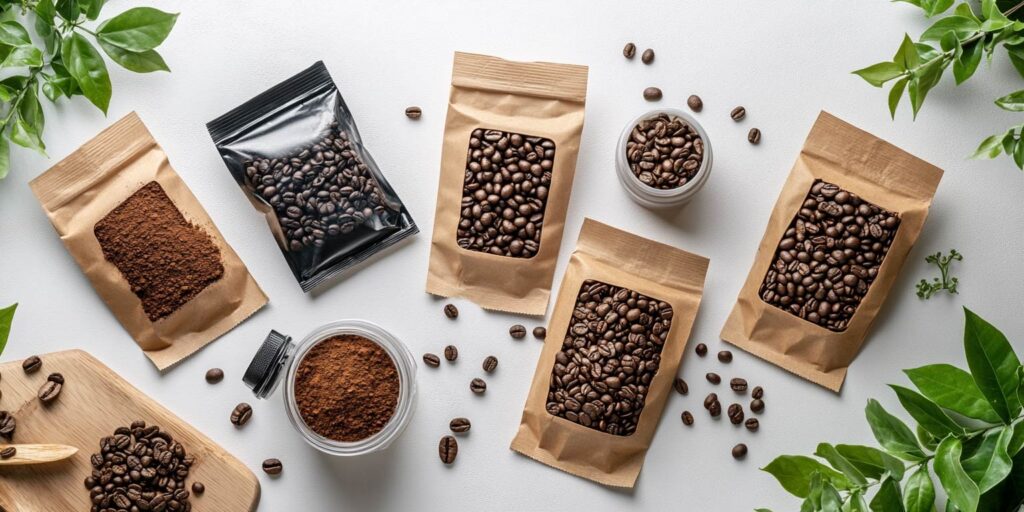Bolsas y Cápsulas de Café Compostables: Una Solución Sostenible

Diferencia entre Compostaje Doméstico e Industrial
Existen dos categorías principales de empaque de café compostable: compostable en el hogar y compostable industrial. Las bolsas y cápsulas compostables en el hogar están diseñadas para descomponerse en composteras caseras o pilas de compost en el jardín. Estos materiales se degradan bajo condiciones naturales como aire, humedad y microorganismos, sin necesidad de equipos especializados. En cambio, los empaques compostables industriales requieren condiciones específicas que se encuentran en instalaciones de compostaje a gran escala, como temperaturas elevadas y ambientes controlados. Aunque el compostaje industrial permite una descomposición más rápida, puede no estar disponible para todos los consumidores.
Tipos de Materiales de Origen Vegetal Utilizados
Las bolsas y cápsulas de café compostables se fabrican con diversos materiales vegetales biodegradables y renovables. Estos provienen con frecuencia de subproductos agrícolas, almidones y fibras naturales. Cada material ofrece beneficios particulares en cuanto a flexibilidad, resistencia y capacidad de compostaje.
Materiales vegetales comunes en el empaque de café compostable:
- Ácido poliláctico (PLA): Derivado del almidón de maíz o caña de azúcar
- Celulosa: Extraída de las paredes celulares de las plantas
- Papel kraft: Papel biodegradable y resistente hecho a partir de pulpa de madera
- Bagazo: Subproducto del procesamiento de la caña de azúcar
- Fibra de cáñamo: Fibra vegetal fuerte y renovable
- Bambú: Recurso de rápido crecimiento y sostenible

Beneficios de las Bolsas y Cápsulas Compostables
El uso de bolsas y cápsulas de café compostables ofrece múltiples beneficios ambientales. Primero, ayudan a reducir los desechos plásticos, un problema grave del empaque convencional. Al utilizar materiales vegetales, se disminuye la demanda de plásticos derivados de combustibles fósiles, fomentando la sostenibilidad. Además, cuando se desechan adecuadamente, estos empaques enriquecen el suelo al descomponerse en materia orgánica. Este ciclo cerrado devuelve el empaque a la tierra, promoviendo ecosistemas más saludables. Muchos de estos materiales también provienen de recursos renovables, lo que contribuye a reducir la huella de carbono.
Desventajas de las Bolsas y Cápsulas Compostables
A pesar de sus ventajas ecológicas, las bolsas y cápsulas compostables también presentan algunos inconvenientes. Uno de los principales es la diferencia en la accesibilidad entre el compostaje doméstico e industrial. Mientras que las bolsas compostables en casa son prácticas, las de compostaje industrial pueden terminar en vertederos si no se cuenta con las instalaciones necesarias. Otro desafío es la durabilidad y vida útil del material compostable, que puede ser menor que la de los plásticos tradicionales, afectando la frescura del café. Además, el costo de producción suele ser más alto, lo que puede traducirse en precios más elevados para el consumidor. Por último, si se desechan incorrectamente con la basura común, el empaque no se descompone y pierde sus beneficios ambientales.
